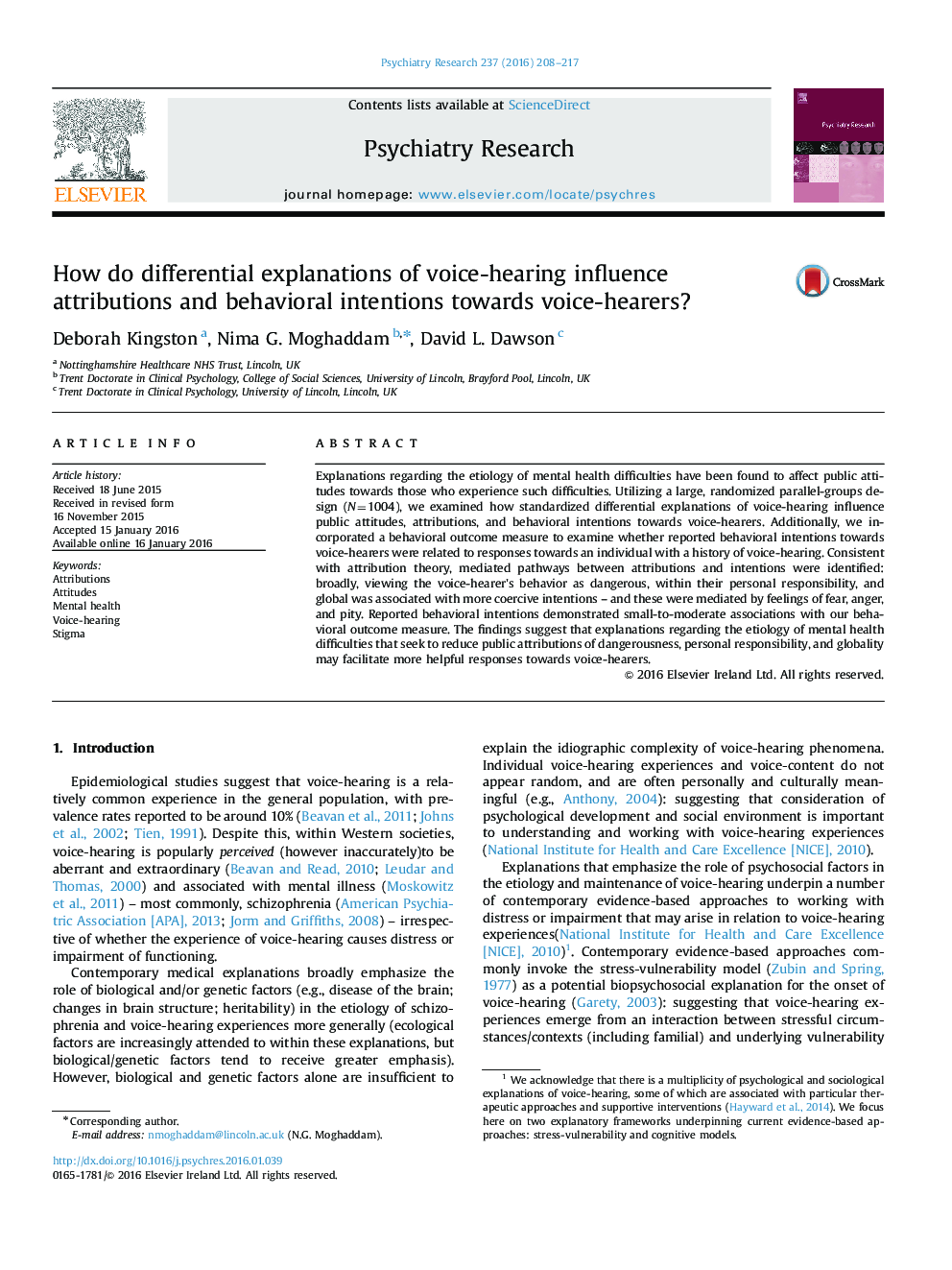| Article ID | Journal | Published Year | Pages | File Type |
|---|---|---|---|---|
| 333115 | Psychiatry Research | 2016 | 10 Pages |
•Vignettes successfully primed differential understandings of voice-hearing etiology.•Cognitive (relative to biological) explanations of voice-hearing augmented blame.•Perceived dangerousness increased negative intentions towards voice-hearers.•Reported behavioral intentions were associated with our behavioral outcome measure.
Explanations regarding the etiology of mental health difficulties have been found to affect public attitudes towards those who experience such difficulties. Utilizing a large, randomized parallel-groups design (N=1004), we examined how standardized differential explanations of voice-hearing influence public attitudes, attributions, and behavioral intentions towards voice-hearers. Additionally, we incorporated a behavioral outcome measure to examine whether reported behavioral intentions towards voice-hearers were related to responses towards an individual with a history of voice-hearing. Consistent with attribution theory, mediated pathways between attributions and intentions were identified: broadly, viewing the voice-hearer's behavior as dangerous, within their personal responsibility, and global was associated with more coercive intentions – and these were mediated by feelings of fear, anger, and pity. Reported behavioral intentions demonstrated small-to-moderate associations with our behavioral outcome measure. The findings suggest that explanations regarding the etiology of mental health difficulties that seek to reduce public attributions of dangerousness, personal responsibility, and globality may facilitate more helpful responses towards voice-hearers.
